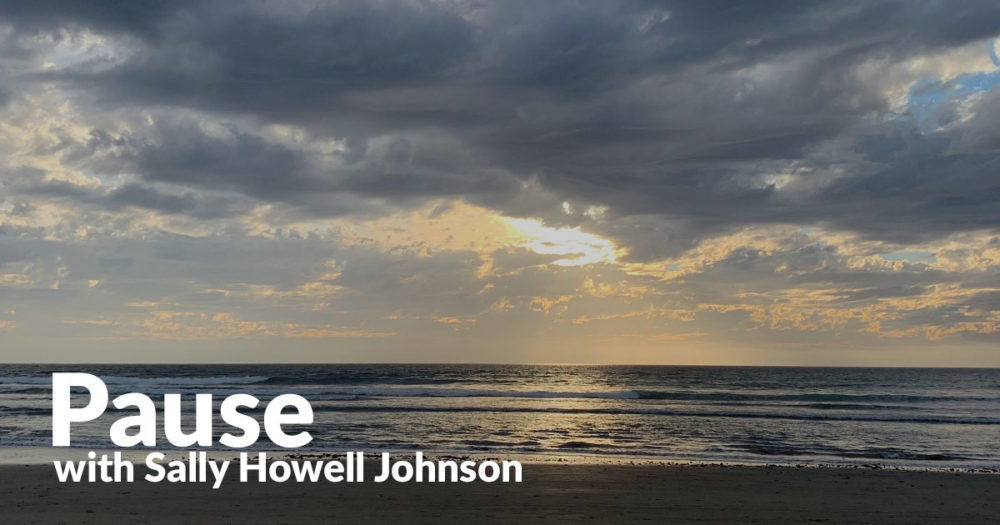“At the beginning of each day,
after we open our eyes
to receive the light
of that day,
As we listen to the voices
and sounds
that surround us,
We must resolve to treat each hour
as the rarest of gifts,
and be grateful
for the consciousness
that allows us to experience it,
recalling in thanks
that our awareness is a present
from we know not where,
or how, or why.
When we rise from sleep let us rise for the joy
of the true Work that we will be about this day,
and considerately cheer one another on……….”
~John McQuiston II, Always We Begin Again
I have been searching through my bookshelves over the last days, taking stock of the varied books I have purchased over the years. There are novels, travel books, theology textbooks, Bible commentaries and a variety of scripture translations. There are books of poetry and prayer, spiritual inspiration and a few self-help books thrown in for good measure. Memoirs, cookbooks, and the children’s books that have become cherished over the years.
This little book titled Always We Begin Again was nestled among so many others but I pulled it out to remind myself of its wisdom. The pages are filled with an updated interpretation of the workings of the Benedictines. Opening this tiny volume, I was reminded once again of the simple, grounded way of these religious who follow the way of St. Benedict.
It is always a wonderful thing to me to find words that call us to be mindful at the beginning of each day. To set an intention to see the unfolding hours as the gift it is, brings with it a certain dose of humility, encourages me to find that inner rhythm so common to those who live in religious community. It is less easy to grab hold of in fits and starts of the days most of us inhabit.
But the truth about this particular reading is that as I read it I thought of our Seattle son who graduates from college this weekend. He has been surrounded for the last four years by the gentle, intentional way of life of the Jesuits. It has been a gift to see that community help shape these important years of his life and to hear the ways in which he speaks in phrases and ideas in which I recognize the sweet, servant spirit of yet another religious order. This education has clearly been one that has been more than subject matter and has become a shaping of the heart and a lifetime. As a mother, it is a joy unspeakable to see.
McQuiston finishes his poem with these words:
“Life will always provide matters for concern.
Each day, however, brings with it reasons for joy.
Every day carries the potential
to bring the experience of heaven;
have the courage to expect good from it.
Be gentle with this life,
and use the light of life
to live fully in your time.”
Whether Benedictines or Jesuits, the wisdom of these words are for us all, religious or not. And they also carry the deep hope this mother has for the continued growing of a son’s gentle life, fully in his time.
